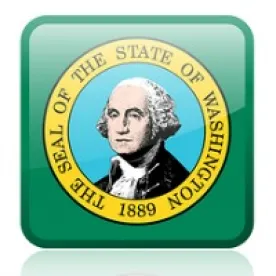Worksite employers and staffing agencies that use temporary construction and manufacturing workers are subject to new safety obligations in Washington designed to protect the temporary workers from workplace hazards and injury. The new law (SHB 1206) takes effect July 25, 2021.
The new law applies to employers engaged in sectors 23 (e.g., construction general contractors and subcontractors engaged in the construction of buildings or highway and utility projects) and sectors 31 through 33 (e.g., manufacturing plants, factories, or mills that use power-driven machines and materials-handling equipment) of the North American Industry Classification System.
SHB 1206 also applies to staffing agencies that recruit and hire their own employees and temporarily assign those employees to perform work or services for certain construction and manufacturing employers.
New Obligations for Staffing Agencies
There are new obligations for staffing agencies. Before assigning a covered temporary employee to the worksite employer, the staffing agency must “[i]nquire about the worksite employer’s safety and health practices and hazards at the actual workplace where the employee will be working to assess the safety conditions, workers tasks, and the worksite employer’s safety program.” These obligations must be met prior to the start of the placement contract and may include obligations to visit the worksite.
Obligations for staffing agency continue during the temporary employment. If a staffing agency becomes aware of unmitigated worksite hazards, it must inform the host employer of the existing hazard, make documented efforts to urge the employer mitigate the hazard, and may have an obligation to remove the worker from the worksite.
The new law also contains specific staffing agency training obligations that must occur, be transmitted to the worksite employer, and meet the new law’s content and recordkeeping requirements.
New Obligations for Worksite Employers
The new law contains new obligations for worksite employers. Before the employee engages in work for the host employer, the employer must document and inform the staffing agency about anticipated job hazards, review the training provided by the staffing agency to determine if it addresses the recognized hazards for the industry, provide specific training tailored to the hazard at the workplaces, maintain site-specific training records, and provide the staffing agency notice that the training occurred within three business days of the training.
Host employer obligations also continue during the employment. If the worksite employer changes the job tasks or work location of the temporary employee, it must inform the staffing agency and employee of any new worksite hazards. The host employer must inform the staffing agency and employee of job hazards not previously covered before the employee undertakes the new tasks. The worksite employer also must update personal protective equipment and training.
Right to Refuse; Retaliation Prohibition
The new law provides the staffing agency and the temporary worker the statutory right to refuse a new job task when it has not been reviewed or the employee has not had appropriate training to do the new task. Likewise, the staffing agency and employer are prohibited from retaliating against an employee who reports safety concerns.
***
Washington’s temporary worker safety law is set against the backdrop of additional new protections for all employees who complain about workplace safety violations. On May 11, 2021, Governor Jay Inslee signed an amendment to the Washington Industrial Safety and Health Act (WISHA), ESHB 1097, which enhances worker anti-retaliation protections. These new WISHA amendments are effective July 25, 2021.




 />i
/>i

